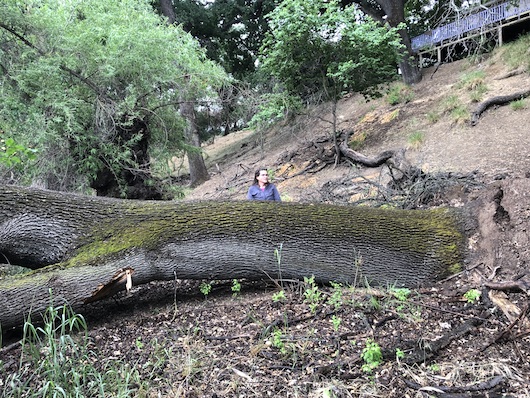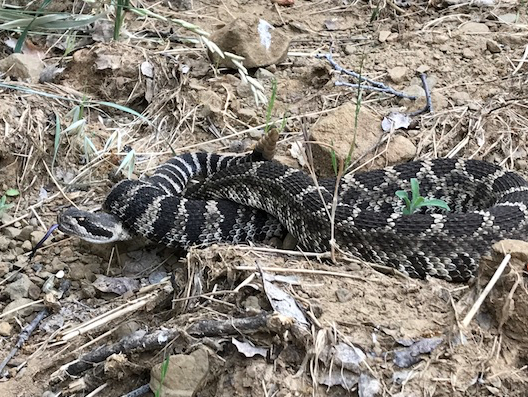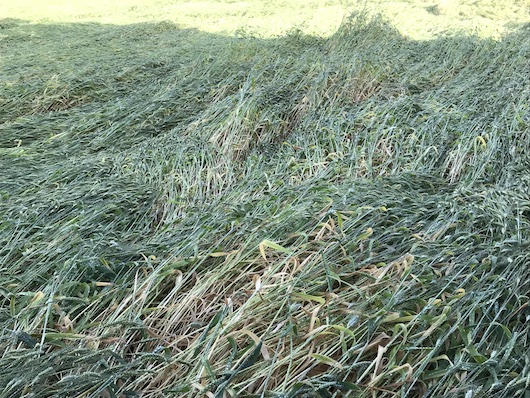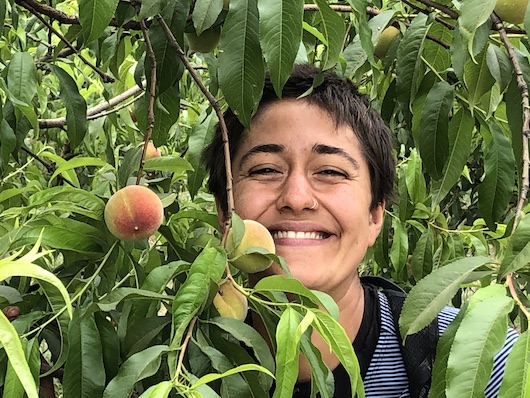
Two huge oak trees toppled over last Tuesday night, apparently simultaneously. —
“If we could eradicate mosquitos from the face of the earth, do you think it would be a good idea?” I heard this not-so-hypothetical question recently on a podcast. The host maintained that because mosquitos are vectors of so many human diseases all over the world, there can be no possible reason not to energetically pursue their extinction using the full arsenal of human inventions.
Us humans have already re-engineered the world to suit our own purposes and inadvertently caused the extinction of many species. And it has not always been inadvertent. For example, vaccinations eradicated the smallpox virus. Perhaps the eradication of mosquitos is just another point along that spectrum? I disagree — yes, eradicating the smallpox virus was a good thing, but on the other hand, I believe we should be more cautious before we meddle with eons of evolution simply to create a world that we imagine and predict will be better for humans.
This is far from a philosophical question. Every time I capture and move a rattlesnake off of Full Belly Farm, I do so because rattlers are a danger to our workers, the people who live here, and our domestic animals. We know this only too well because a young girl, a neighbor and several of our dogs have been bitten by rattlers in the past. Despite that, I would not advocate eradication of rattlers and I try to avoid killing the rattlesnakes that we find on our property. I have moved dozens of them into uninhabited parts of the hills over the years and this year we have already seen several.

This rattler that we moved off of the farm recently is using its tongue to help it smell the nearby environment. Rattlers don’t have ears, but they do have an extraordinary sensitivity to vibrations of the substrate upon which they rest. They also do not have taste buds.
Some people say that rattlesnakes are territorial and if removed from their home range, will just return as soon as possible. Little research has been done to ascertain this one way or the other. Available data does seem to indicate that rattlers have home ranges, or at least favorite areas, but it is not known if they will try to return home if displaced. There is certainly no evidence that a rattlesnake new to a territory will be attacked by snakes that are already present. I hope that the rattlesnakes that we have moved off of the farm have found a good life in their new homes.
Agriculture and industry have eradicated venomous snakes from many extensive areas they once frequented. The Massasauga, once common on the prairies of the upper Mississippi Valley has now retreated into the wastelands; the Sidewinder has disappeared from the irrigated sections of the Imperial and Coachella valleys in southern California; and the Prairie Rattlesnake has been driven out of the farm lands of Kansas and Nebraska. This has made those areas safer for humans and their animals but I hope we can be persuaded to leave a little space for the wild things as well. While rattlers may be of little use to humans and even occasionally dangerous, the way I see it is that rattlers seek only to defend themselves. I wish them well and hope that they can survive in remote areas.
The beginning of rattlesnake season was not the only News From the Farm last week. Two huge old oak trees below Andrew’s house toppled over last Tuesday night. This was before the rain started. Their roots are full of Armillaria mushrooms, but that does not usually kill oaks as long as they are not being watered in the summertime. We’re not really sure why the oaks fell, but let us know if you need some oak wood!

This photo looks like a sea of green grass. It is actually what used to be a beautiful field of wheat that lodged and collapsed after a night of rain.
After the heavy rain last Wednesday night a beautiful field of wheat lodged (collapsed). As a result, the wheat will be tricky for us to harvest, but Paul will give it his best try. Lodging affects wheat and other cereal crops, and the older varieties that we grow are a little more susceptible to it than the newer ones.
—Judith Redmond

Intern Lauren and the soon-to-be-ready Queencrest peach.
